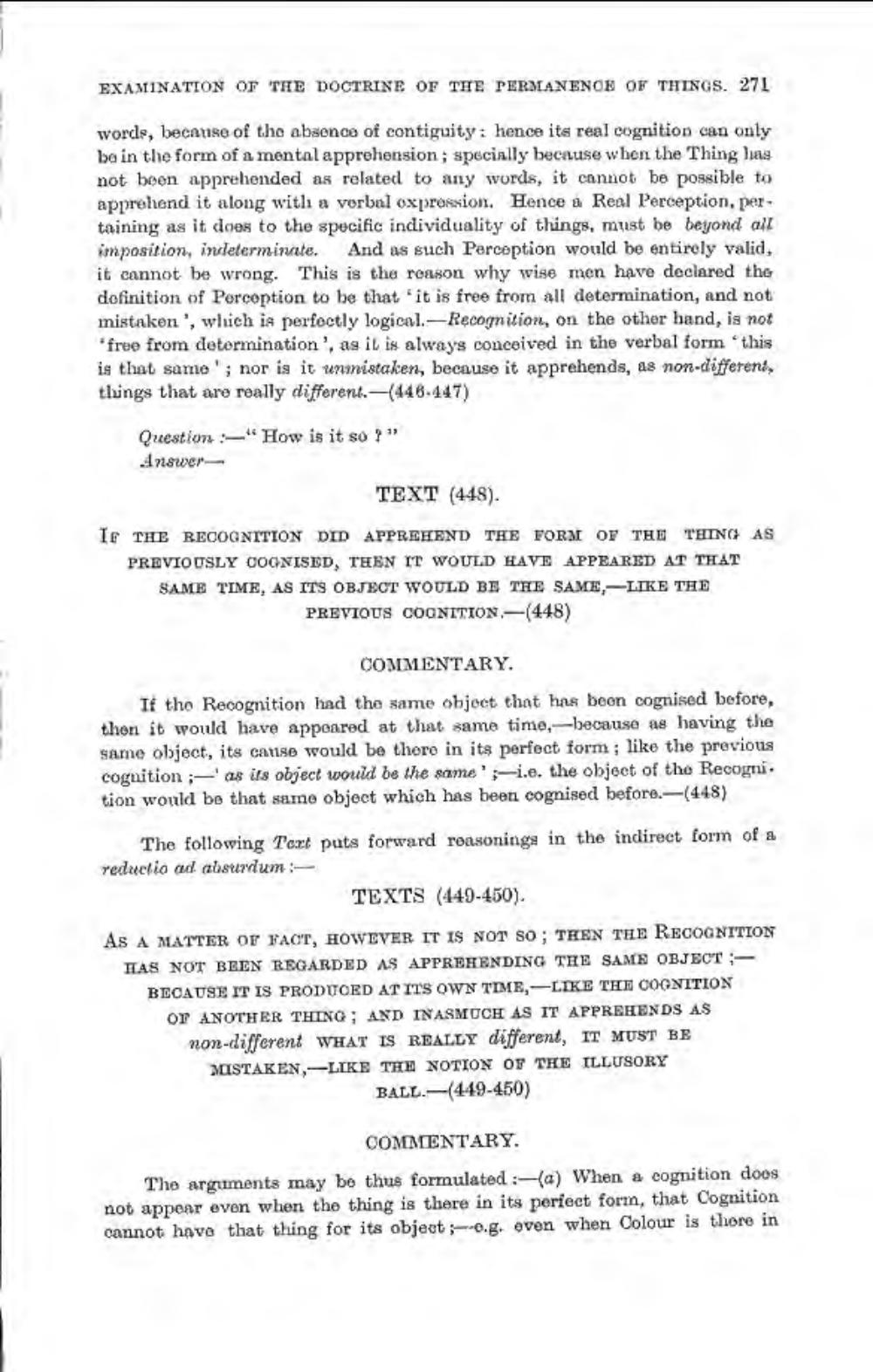________________
EXAMINATION OF THE DOCTRINE OF THE PERMANENOE OF THINGS. 271
words, because of the absence of contiguity: hence its real cognition can only ba in the form of a mental apprehension; specially because when the Thing las not been apprehended as related to any words, it cannot be possible to apprehend it along with a verbal oxpression. Hence a Real Perception, per taining as it does to the specific individuality of things, must be beyond all imposition, indeterminate. And as such Perception would be entirely valid, it cannot be wrong. This is the reason why wise men have declared the dofinition of Perception to be that "it is free from all determination, and not mistaken', which is perfoctly logical.-Recognition, on the other hand, is not 'free from determination', as it is always conceived in the verbal form this is that same'; nor is it unmistaken, because it apprehends, as non-differens, things that are really different.-(446.447)
Question Answer
"How is it so ? "
TEXT (448)
IF THE RECOGNITION DID APPREHEND THE FORM OF THE THING AS PREVIOUSLY COGNISED, TEEN IT WOULD HAVE APPEARED AT THAT SAME TIME, AS ITS OBJECT WOULD BE THE SAME,-LIKE THE
PREVIOUS COONITION-(448)
COMMENTARY.
If the Recognition had the same object that has been cognised before, thon it would have appeared at that same time, because as having the same object, its cause would be there in its perfect form ; like the previous cognition as its object wouid be the same'-.e. the object of the Recogni. tion would be that same object which has been cognised before.-(448)
The following Text puts forward reasonings in the indirect form of a reductio ad absurdum
TEXTS (449-450).
AS A MATTER OF FACT, HOWEVER IT IS NOT SO; TEEN THE RECOGNITION HAS NOT BEEN REGARDED AS APPREHENDING THE SAME OBJECT - BECAUSE IT IS PRODUCED AT ITS OWN TIME,-LIKE THE COGNITION or ANOTHER THING; AND INASMUCH AS IT APPREHENDS AS non-different WHAT IS REALLY different, IT MUST BE MISTAKEN, -LIKE TEE NOTION OF THE ILLUSORY
BALL.-(449-450)
COMMENTARY.
The arguments may be thus formulated : a) When & cognition doos not appear even when the thing is there in its periect form, that Cognition cannot have that thing for its object;-.g. even when Colour is thore in




